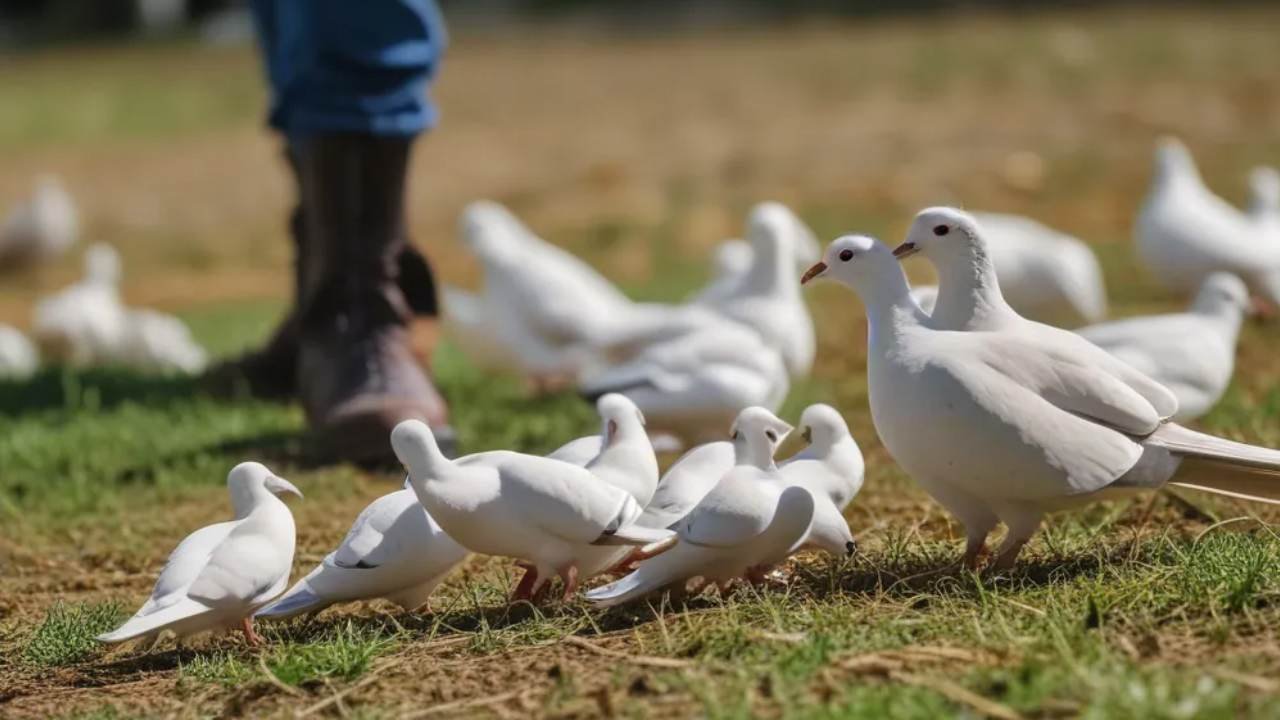As the late summer sun casts a golden glow over the rolling hills of the Bluegrass State, a familiar sound returns to the evening air—the whistling wings of migratory birds descending on fields and waterways. For hunting enthusiasts across the Commonwealth, this signals the start of a cherished autumn tradition: the pursuit of swift-flying game birds. If you’re preparing for some fast-paced action, you’ve come to the right place! This comprehensive guide covers everything you need for the 2025-2026 period, from precise dates and zones to license info and essential regulations. Let’s get you ready for a safe, successful, and incredibly enjoyable adventure beneath the Kentucky sky. 🌄
🕊️ Quick Glance: Season Snapshot
Here’s a quick overview of the primary species you can pursue in Kentucky.
| Bird Type | 2025 Season Dates | Key Methods & Notes |
|---|---|---|
| Mourning Dove | Sept 1 – Oct 25 & Dec 23 – Jan 11 | Shotgun; Requires HIP certification |
| Eurasian Collared-Dove | Open Year-Round* | Shotgun; No closed season |
| White-winged Dove | No Open Season | Protected; Not a legal game species |
*Always check local ordinances, as some municipalities may have restrictions.
📅 Full 2025-2026 Hunting Dates & Details
Kentucky offers excellent wing-shooting opportunities, with a split season designed to align with migration patterns. Here’s the complete schedule you need to know.
Mourning Dove
- First Segment: September 1, 2025 – October 25, 2025
- Second Segment: December 23, 2025 – January 11, 2026
- Daily Bag Limit: 15
- Possession Limit: 45
- Zones: Statewide
- Requirements: All participants need a valid hunting license and HIP certification.
Eurasian Collared-Dove
- Dates: Open year-round (No closed season)
- Daily Bag Limit: No limit
- Possession Limit: No limit
- Zones: Statewide
- Requirements: Standard hunting license. HIP certification is not required for this non-native species.
🗺️ Pro Tip: Some of my most successful outings have been near sunflower fields and recently harvested corn plots in western Kentucky. Taking time to scout using the Kentucky Department of Fish and Wildlife Resources’ public land maps before opening day makes all the difference in finding those active feeding areas!
🐦 Other Feathered Opportunities
While your focus might be on doves, these other small-game species share similar habitats and seasons, perfect for a mixed-bag experience.
- Bobwhite Quail
- Season: November 16, 2025 – February 10, 2026 (Zone 1).
- Note: A classic game bird that thrives in the same grassland and agricultural edges.
- Common Snipe
- Season: September 1 – December 16, 2025.
- Note: Requires HIP certification. Search for these elusive birds in muddy shorelines and wet field edges.
📜 The Rulebook: Key Kentucky Regulations
Following the rules ensures both your safety and the future of the sport. Here are the essential regulations every wing-shooter must know.
- Shooting Hours: Begin one-half hour before sunrise and end at sunset.
- Baiting: Strictly prohibited for migratory game birds. An area remains considered baited for 10 days after all bait has been removed.
- Lead Shot: The use of non-toxic shot is required on all state-owned and managed lands. It’s strongly recommended on private property to protect the environment.
- License Validation: You must carry your physical hunting license and HIP permit while in the field.
- Hunter Orange: Not required for bird hunting, but always a wise safety precaution when hunting with others.
- Land Access: Always obtain explicit permission before hunting on private property.
💰 2025-2026 License & Permit Fees
Here’s a breakdown of the costs for residents and visitors to Kentucky.
| License/Permit Type | Resident Fee | Non-Resident Fee |
|---|---|---|
| Annual Hunting License | $27 | $155 |
| HIP Certification | Free | Free |
✅ What You Need to Legally Hunt
Before you head into the field, ensure you have these essentials checked off your list:
- Kentucky Hunting License: Required for all hunters (except landowners hunting on their own property).
- Hunter Education Certification: Mandatory for all hunters born on or after January 1, 1975.
- HIP Certification: Required for all hunters pursuing mourning doves, snipe, or other migratory birds. This is free and can be added when you purchase your license.
🎟️ You can easily purchase your license and add HIP certification online through the Kentucky Department of Fish and Wildlife Resources’ licensing system, at any licensed vendor, or at a department office.
❓ Frequently Asked Questions
Q: Can I use electronic calls for doves in Kentucky?
A: Yes! Electronic calls are perfectly legal for attracting doves.
Q: Are there any youth-specific hunting opportunities?
A: Absolutely! Kentucky offers special youth seasons and mentored hunt programs. Dates are typically announced in the summer; check the Kentucky Department of Fish and Wildlife Resources website for the 2025-2026 schedule.
Q: Where is the best public land to hunt in Kentucky?
A: Some excellent public access can be found on Wildlife Management Areas (WMAs) like Ballard County, Peabody, and West Kentucky. Always consult the department’s public access maps before your outing.
Q: Is there a possession limit for Eurasian collared-doves?
A: No. Since they are an invasive species, there are no bag or possession limits in Kentucky.
Q: Can I hunt over sunflower fields I planted myself?
A: Yes, you can hunt over crops planted and managed through normal agricultural practices. However, you cannot manipulate the crop specifically to attract birds for hunting purposes.
🏁 Wrapping It Up
Kentucky’s 2025-2026 migratory bird season is shaping up to be another memorable one. From the exciting opener on September 1st through the late season in January, there’s ample opportunity to enjoy this time-honored tradition. Just remember to secure your license, complete your free HIP certification, review the regulations thoroughly, and always prioritize safety. Here’s to fast shooting, good companions, and beautiful autumn days in the Kentucky countryside! 👍
⚠️ Always refer to the current-year official regulations booklet for the final word. Official Resource: Kentucky Department of Fish and Wildlife Resources Hunting Guide

